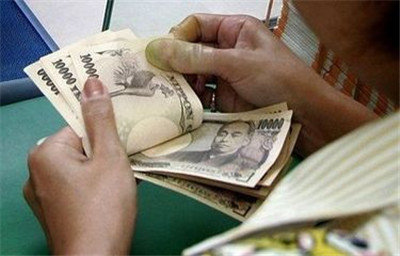(单词翻译:单击)
As the eurozone’s great experiment with negative interest rates continues, the dynamic of global capital flows has changed dramatically, responding to big shifts in the relationships between the world’s main currencies. While the US dollar is in much the same place relative to the yen as it was at the start of the year, the euro has depreciated by more than a 10th against the Japanese currency. This has confounded an army of forecasters who expected more yen weakness in light of the failure of Abenomics to stoke Japanese inflation. They also worried that Japan would be exporting deflation via a weaker currency to a eurozone that was struggling with deficient demand.
在欧元区继续推进大规模的负利率试验之际,全球资本流动状况发生了显著改变,这是因应世界主要货币之间的关系的巨变。尽管现在美元兑日元汇率和年初基本一样,但欧元兑日元贬值逾10%。这让一些预测人士感到困惑,他们曾预计,由于“安倍经济学”未能让日本通胀上升,日元将会继续贬值。他们还担心,日本将通过日元贬值将通缩输出至正在艰难应对需求不足的欧元区。

Mercifully we have all been spared a turn of events that would have been a recipe for much fiercer currency wars than we have experienced so far. The reason is that the attraction of the yen as a funding currency for carry trades has been completely undermined by the European Central Bank’s quantitative easing and all the other pressures that have contributed to negative eurozone bond yields.
幸运的是,事态一直没有进一步发展,这本会导致比我们迄今经历的所有货币战争还要猛烈得多的货币战。原因是,日元作为套息交易的融资货币的吸引力,完全被欧洲央行(ECB)的量化宽松举措以及其他导致欧元区债券出现负利率的压力因素所破坏。
The ECB and the Bank of Japan have between them pulled off the remarkable trick of making the bond market of a country where public sector debt reached 226 percent of gross domestic product last year look a sound bet to risk-averse international investors.
欧洲央行和日本央行(BoJ)合力完成了一出了不起的把戏,即让厌恶风险的国际投资者将一个公共部门债务达到GDP 226%的国家的债市视为稳健的押注。
Japanese government bonds saw strong inflows in the first quarter, following a notable flow of capital in the second half of 2014. That has been a perfectly justifiable response to the narrowing of interest-rate differentials and lower than expected inflation. For foreign investors piling into JGBs, additional spice comes from the fact that the BoJ’s bond-buying programme conveniently underpins the investment.
日本政府债券在2014年后半年出现明显资金流入之后,今年一季度又吸引了大量资金。从利差缩小和通胀低于预期的角度来看,这是相当合理的。对大举买入日本政府债券的外国投资者而言,吸引力上升来自如下事实,即日本央行的债券购买计划有利于这种投资。
At the turn of the year the BoJ believed that foreigners held 9.3 per cent of the total stock of Japanese Treasury bills and JGBs. This is quite a development in a market where the Japanese have traditionally lent to fellow Japanese. In effect the JGB market, hitherto notoriously characterised by home bias, is succumbing to globalisation.
今年年初,日本央行估算,外国人持有日本国库票据(T-bills)及政府债券存量的9.3%。在一个日本人传统上只向本国国民放贷的市场上,这是一个相当了不起的进展。实际上,迄今仍以“本土倾向”著称的日本政府债券市场正逐步走向全球化。
In one sense that is helpful. If an elderly population is saving less in the face of rising bills for demographically inspired social spending, it can make sense for foreigners to plug the gap. On the other hand global capital is frisky and fickle, as so many Asian countries discovered to their cost in the financial crisis of 1997-98. Of course, Japan has a huge stock of external assets and far less external borrowings than the US or the eurozone. That provides a cushion against financial instability. And the low interest rate environment takes the sting out of debt servicing.
从某种意义上来说,这是有益的。如果老年人因人口因素引发的社会支出费用上升而减少储蓄,让外国人填补空缺是明智的做法。另一方面,全球资本是善变的,许多亚洲国家在1997年至1998年的金融危机期间付出惨重代价才明白了这一点。当然,日本在海外拥有巨额资产,海外借款也比美国或欧元区少得多。这为日本防范金融动荡提供了缓冲。低利率环境也让偿债变得不那么艰难。
The effective interest rate on Japanese government debt was the lowest in the OECD at 0.9 per cent in 2014, limiting net interest payments to 1 per cent of GDP, well below the OECD average of 1.6 per cent, according to the grouping of nations. Yet as the OECD’s latest country report on Japan points out, the financing of large government deficits at low rates by savers will not continue indefinitely, leaving Japan vulnerable to rising interest rates.
经合组织(OECD)的数据显示,日本政府债券的有效利率是经合组织中最低的,在2014年仅有0.9%,这让其净利息支付只占到GDP的1%,远低于经合组织1.6%的平均水平。然而正如经合组织在其最新发布的日本经济年度报告中指出的那样,由储户以低利率为巨额政府赤字融资的模式将不会永远持续下去,这让日本很容易受到利率上升的冲击。
The report adds that a normalisation in the government’s effective borrowing rate to 3 per cent would, for example, expand the budget deficit from 8.5 per cent of GDP in 2013 to about 13 per cent. That would be a panic-worthy fiscal nightmare in a country where government revenues have been weakened by anaemic growth, and where public spending on the elderly has proved exceptionally hard to control.
该报告补充称,例如,如果日本政府的有效借款利率回归正常的3%,预算赤字占GDP的比例就会从2013年的8.5%升至13%左右。在一个政府收入因经济增长低迷而下降,而且投向老年人的公共支出很难控制的国家,这将是一场值得担忧的财政噩梦。


